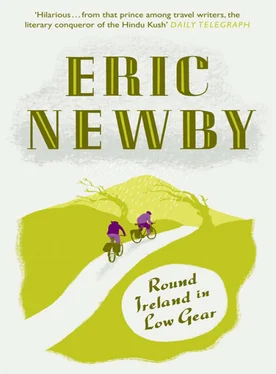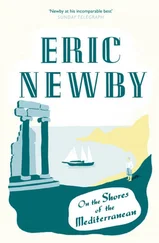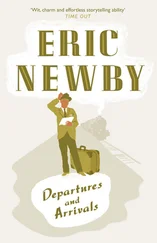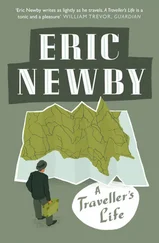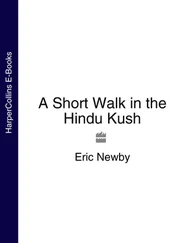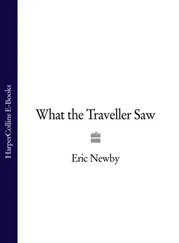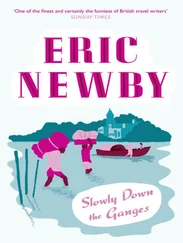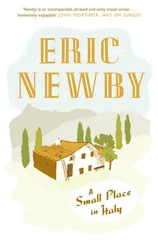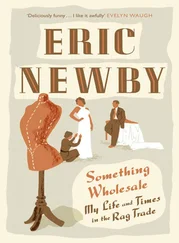When I finally succeeded in getting them out I left Wanda cowering with her bicycle as far from the road as possible and, during a momentary lull in the traffic, I sprinted twenty or thirty yards down the road with my own bike to the point where the road straightened out, and parked it against a tree. Then I went back to fetch Wanda’s bike and we both ran for our lives. In doing all this we failed to see the entrance to the lane which led to the farm, or the ‘great soign’ which was supposed to draw attention to it. Even if we had seen the lane it would have been impossible to turn into it on such a night, as it would have meant crossing both streams of traffic.
The next half mile was slightly less unpleasant than what had gone before. The road was without any dangerous bends and ran, so far as I could see, through fairly open country, although the trucks kept on coming and there was no footpath to push our bikes along. We were much too unnerved to cycle. We were also covered in mud from head to foot. We passed two small roads which led off to the right, neither of which, although we did not understand the reason at the time, was marked by any sort of ‘soign’, let alone a great one.
It now began to pour with rain, which was a blessing in that it washed away the worst of the mud from our boots and our Gore-Tex suits, and just as we were beginning to despair of ever finding the right road, we came abreast of a couple of workmen’s cottages which stood above the road on the left, one of which had a light in its front room and a front door without a knocker. After battering on it with my fists for some time – the roar of the traffic must have made it almost impossible to hear anything within – it opened to reveal the outline of a tall figure standing against the blacked-out entrance. ‘Ah, it’s Dilly Griffey you’re wanting,’ the figure said in the voice of a youngish man. ‘You should have turned away at the bridge. You will have to go back to the bridge, now, and you’ll see the soign and a road running away up along the railway to the left. It’s no distance, with your boikes.’
I wondered if this man, who presumably had been brought up in the automobile age in Ireland, had the slightest idea of what travelling along the N18 at night on a bicycle was like. Or perhaps he had. Perhaps he was one of those cyclists one encounters in rural Ireland on wet nights who wear black suits, long black overcoats and black caps with buttons on and who wobble down the middle of the road on machines without any sort of lights or reflectors, yet are somehow never touched, let alone blown off them, knocked down and ‘kilt’. Whatever he was, I told him that nothing would persuade us to go back to the bridge. Was there no other way of getting to it?
‘Well, there is,’ he said. ‘You can take the next right down past Ballyline House – you’ll be knowing Ballyline House, no doubt – then you don’t take the road to Dromore or Ruan, but the one up the hill and you’ll be there. There’s a soign for it.’
So we did another half mile on the road, then scuttled across it into a lane which led past an expensive-looking illuminated blur to the left which was presumably Ballyline House, in which I imagined Anglo-Irish ladies with high voices and men wearing waistcoats and watch chains downing Beefeater’s gin and Glenlivet. Then we turned sharp right up a nasty hill (anything not dead flat was nasty by this time) past a conifer plantation. Half way up it we met a man with an electric torch who had the impertinence (or perhaps he was feeble-minded), since it had only stopped pouring with rain a few seconds previously, to say that it was a grand noight – grand noight for what? Murder? He also said that the farm was down the hill on the other side, a bit, and that there was a crossroads and a ‘soign’, and we couldn’t miss it.
At the crossroads, using my bicycle lamp and promising to buy myself a pocket torch for map reading at noight on future events such as this, I eventually discovered the soign, which was not at all that great, coyly hidden in a hedgerow, half-covered by vegetation and pointing uphill in the general direction of Ballyline House, the way by which we had come.
I felt my reason going. Perhaps it had, already. Was I already one with the great Gaels of Ireland, the men that God made mad, as most of the other Gaels I had met on this, my first day in Ireland, appeared to be?
I told Wanda to stay where she was at the crossroads and guard herself, the soign and her boike, and let no one take any of them away, or otherwise interfere with them. Then I engaged the lowest gear at my disposal and pedalled away uphill in pursuit of the man with the torch who had so foully misused us. By the time I had climbed it and gone down the other side and caught up with him he was practically at Ballyline House. Perhaps he was on his way there to tell the assembled house party what a trick he had played on two foreigners. ‘Ah,’ he said courteously, ‘I should have told you about the soign. It should point left at the cross but then the wind catches and turns it back on itself. It often happens with it. It’s a strange thing.’
I went back up the hill, past the conifers, and down the other side to the crossroads where Wanda, like the Roman soldier faithful unto death at Pompeii, kept her vigil, and told her that it was left at the crossroads we had to turn, to which she replied that it all depended whether he meant left going towards Ballyline House or left going away from it.
We plumped for the latter, and tackled another steep hill, from the top of which, to our inexpressible relief, we could see the lights of the farm shining in a hollow below.
We were welcomed by Mrs Griffey’s small grandson, Gary, an enthusiastic cyclist who was so enamoured of Wanda’s pint-sized mountain bike that he wanted immediately to ride away into the boondocks on it, and by Mrs Griffey’s grown-up son, Tom, who had been lying on a sofa watching telly with his shoes off and who said it was a funny thing about the soign that the wind always twisted it. Present also was Mrs Griffey’s daughter-in-law, the girl to whom I had spoken on the telephone, who said she would cook the food Wanda had bought at the supermarket.
After all this, and a couple of very hot baths (hot baths, as we subsequently discovered, being something of a rarity in Irish B and Bs, especially in winter) we went to bed, whacked, although altogether we had only covered about thirty-five miles. By now it was a fine night and a moon in its last quarter shone down from a sky filled with stars in the last hours of my birthday, which I shared with Henry VI, born 1421, and Warren Hastings, born 1732. If the next ten days in Ireland produced cycling anywhere near as exciting as this evening’s we would probably be dead before Christmas.
CHAPTER 4 Round the Burren
The Burren, ‘of which it is said that it is a country where there is not water enough to drown a man, wood enough to hang one, nor earth enough to bury him, which last is so scarce that the inhabitants steal it from each other, and yet their cattle are very fat, for the grass growing in tufts of earth of two or three foot square that lie between the rocks which are of limestone, is very sweet and nourishing.’
Memoirs of EDMUND LUDLOW, one of Cromwell’s generals The following morning we woke around seven-thirty to find brilliant sunshine pouring in through the bedroom windows. Anxious to make the most of the day, we got dressed and went downstairs to find no one about, except Gary, the grandson of the house, a fount of energy and of information about everything connected with the property and its occupants.
‘It’ll be a good bit yet before you get a sniff of your breakfast,’ he put it, picturesquely; and indeed it was ten o’clock before it finally appeared, or indeed there were any signs of life at all. It had certainly been a working farm when we had stayed on it last, but now showed signs, in spite of a tractor parked outside, of being an erstwhile one.
Читать дальше
